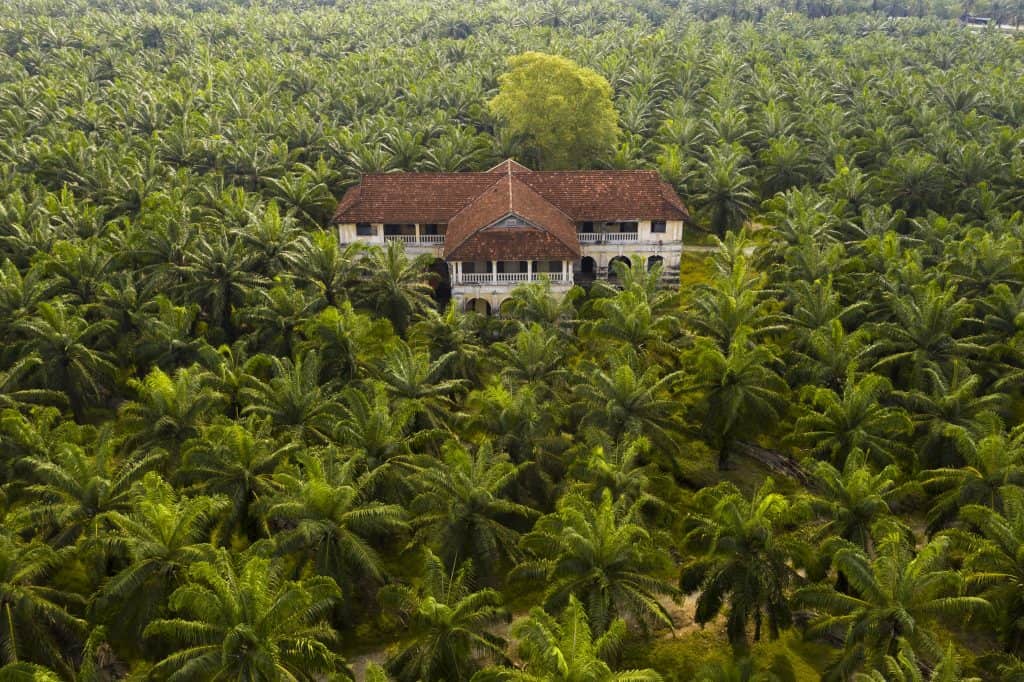Indonesia has a lot of attractive land for oil palm plantation business. The characteristics of palm oil produce a smooth and soft oil; free from trans fats; to oils that have no taste and smell. As an industry, Indonesia has palm oil plantations tax authorities. Taxes imposed on oil palm plantations are Land and Building Tax (PBB), Value Added Tax (VAT), Corporate Income Tax (PPh), International Trade Tax (PPh Article 22 and Export Levy), Dividends and Regional Levy Tax for any activities related to oil palm plantations.
Table of Contents
Land and Building Tax (PBB) for Oil Palm Plantations

The PBB is a tax imposed on land and buildings. The DGT uses a Tax Return Payable (SPPT) to notify the amount of PBB owed to the Taxpayers. The basis for the imposition of Land and Building Tax is the Selling Value of Tax Objects (NJOP), by calculating:
PBB = Tax Rate X Selling Value of Tax object = 0.5%X (40%X (SVTO-SVTOTR*)
*with a maximum limit of Rp 24.000.000,-
The plantation areas subject to the PBB are the following:
1) Productive Areas
These areas are in the plantation business activities and have been planted with plantation crops.
2) Unproductive Areas
These are untreated areas and areas that have been cultivated but have not been planted and nursery areas.
3) Unproductive Areas
These are areas that are within the area of plantation business activities that cannot be cultivated for plantation business activities.
4) Safety Area
Areas within plantation business activities that are used to support and protect plantation business activities.
5) Emplacement Area
Areas within the plantation area that are used for buildings and/or yards and their supporting facilities.
The areas located within the plantation areas above are used for buildings and/or yards and supporting facilities.
Oil Palm Plantations Tax: Value-Added Tax (VAT)
In the palm oil business, the VAT applied consists of input tax and output tax which will be collected when Taxable Entrepreneur carries out activities to buy and sell palm products.
Distinctions in VAT Treatment for Integrated and Non-integrated Palm Oil Companies
VAT treatment in the palm oil industry is further distinguished based on the scale of the company and production output, such as; integrated palm oil companies with non-integrated companies. The differences of the two types are as follows:
1) Integrated, means an entity that owns an oil palm plantation, as well as a palm oil mill.
2) Non-integrated, means not having a palm oil mill. The company only carries out the storage of Fresh Fruit Bunches (FFB) to be sold into CPO and other derivative products.
Minister of Finance Regulation No. 115/PMK.05/2022 and its Impact
Minister of Finance Regulation No. 115/PMK.05/2022 regulates amendments to the Minister of Finance Regulation No.103/PMK.05/2022 concerning service rates of public service agencies of oil palm plantation fund management agencies at the Minister of Finance. The points in the regulation are:
1) Fresh Fruit Bunches (FFB) are designated as strategic Taxable Goods (BKP) which upon submission are exempt from the imposition of VAT (Government Regulation (PP) No. 31 of 2007).
2) Input Tax paid for the acquisition of Taxable Services / Taxable Goods upon submission of which is exempt from the imposition of VAT cannot be credited (VAT Law No. 42 of 2009 Article 16B paragraph 3).
3) Guidelines for Calculating Input Tax Crediting for Taxable Entrepreneurs who submit tax payable and without tax payable with the provisions (Decree of the Minister of Finance No. 575 / KMK.04 / 2000):
- An integrated palm oil company consisting of goods-producing activities and an integrated palm oil company consisting of goods-producing activities, upon whose delivery is not Vatable. The unit of activity that produces goods for which VAT is owed, then the input tax on the acquisition of BKP / JKP used for activities to produce BKP can be credited.
- Input tax on the acquisition of BKP / JKP used for activities to produce agricultural products whose submission is exempt from the imposition of VAT (FFB) cannot be credited.
- Input tax on the acquisition of BKP / JKP used for activities to produce BKP while producing strategic BKP can be credited comparably, with the amount of BKP circulation against the entire circulation.
4) Exports collected by the Palm Oil Plantation Fund Management Agency (BPDPKS) for all Crude Palm Oil (CPO) products and derivatives to zero.
Oil Palm Plantations Tax: Corporate Income
Corporate income tax in the palm oil industry is generally the same as corporate income tax of other industrial companies. In order to be more suitable and reasonable, it is necessary to carry out an assessment procedure for oil palm plantation businesses, in order to analyze the fairness of business circulation and/or costs through PBB imposition activities or examinations in accordance with SE-27/PJ/2017.
Oil Palm Plantations Tax: International Trade
Income Tax Article 22 collectors are Industries and Exporters engaged in the forestry, plantation, agriculture, animal husbandry and fishery sectors that have not gone through the manufacturing industry process for the purchase of materials for industrial or export purposes (Article 1 paragraph (1) letter i PMK-34 / PMK.010 / 2017). Oil palm plantations that use outsource services to produce CPO which purchase fresh fruit bunches are industries or exporters as collectors of Income Tax Article 22.
Income Tax Article 22 and its Application in the Plantation Sector
Income Tax Article 22 for the plantation sector such as oil palm is owed at the time of purchase and has a rate of 0.25% of the purchase value (excluding VAT) and on purchases greater than 20 (twenty) million rupiah (not fragmented). For plantation industries that are collected without a Taxpayer Identification Number (NPWP) will be charged 100% higher and the nature of this collection is not final that later it can become a tax credit at the end of the year.
Meanwhile, rates for exports on plantation fund levies on palm oil, CPO and derivative products will be 0 (nil) in the period from July 15 to August 31, 2022. Then, the export levy rate for CPO is at maximum of USD200/MT before July 15, 2022 and at maximum of USD240/MT starting September 1, 2022. (PMK-115/PMK.05/2022).
Dividend Taxation for Palm Oil Companies
Shareholders of palm oil companies can come from locally or from abroad. Usually, profitable palm oil companies will distribute dividends. For overseas shareholders, Indonesia’s withholding tax rate for dividends and interest is 20% unless there is an interstate agreement (P3B) and has a DGT’s Certificate of Domicile (CoD) Form. For local shareholders, dividends are tax-free.
Local Levy Tax for Plantation Companies
Plantation companies are subject to a number of local taxes and regional levies with current tax rates ranging from 1.5% to 35% of the reference value set by the government. Taxes on plantations that have been specifically regulated in the Tax Law and other Derivative Regulations need to be understood by plantation companies to fulfill their obligations as taxpayers so that state revenues from the oil palm plantation industry sector would increase from year to year.
Are you seeking expert assistance with navigating the intricacies of Oil Palm Plantations Tax in Indonesia? Look no further! SW Indonesia is your trusted partner in tax advisory and consultation services. Our team of experienced professionals is well-versed in the regulations and nuances of the industry, ensuring that your business stays compliant while optimizing its financial potential. Whether you have inquiries, need assistance with tax planning, or require personalized guidance, our experts are here to help. Contact us today at +62 2993 2132 to unlock the full benefits of Oil Palm Plantations Tax and propel your business towards greater success.
